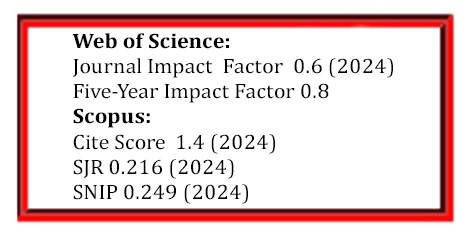Experimental Investigation and Prediction of Mechanical Properties of Friction Stir Welded Aluminium Metal Matrix Composite Plates
DOI:
https://doi.org/10.5755/j01.ms.18.4.3092Keywords:
friction stir welding, metal matrix composite, decision tree technique, tensile propertiesAbstract
Friction stir welding (FSW) is a relatively contemporary solid state welding process and has been employed in aerospace, railway, automotive and marine industries for joining of aluminum, magnesium, zinc, titanium, copper alloys, dissimilar metals and thermoplastics. The FSW process parameters such as tool rotation speed, tool traverse speed and tilt angle play an important role in deciding the joining quality. The present study defines the effect of FSW process on the tensile properties of the AA2124/SiC/25p metal matrix composite (MMC) plates. Obtained results showed that the joint efficiency decreases by increasing the tool traverse speed while tool rotation speed was kept constant. Second contribution of this study is the application of decision tree technique to predict the tensile properties of friction stir welded MMC plates. It is seen that methodology can be applied with great accuracy.Downloads
Published
2012-12-13
Issue
Section
METALS, ALLOYS, COATINGS
License
The copyrights for articles in this journal are retained by the author(s), with first publication rights granted to the journal. By virtue of their appearance in this open-access journal, articles are free to use with proper attribution in educational and other non-commercial settings.



